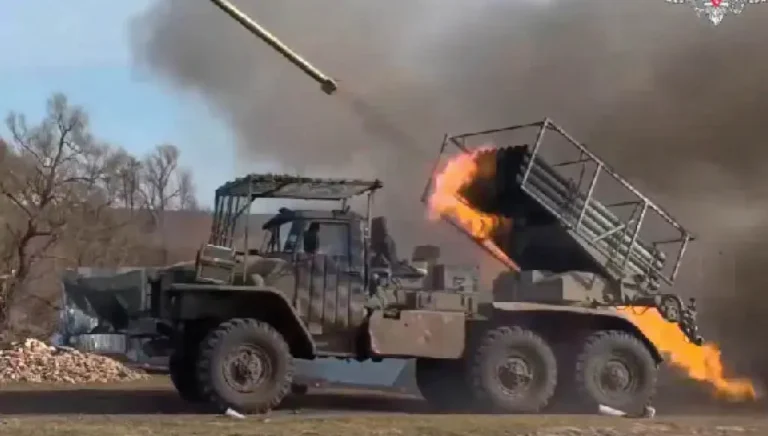
The deadly exchange of fire between Palestinian militants in the Gaza Strip and the Israeli military has escalated significantly, with the UN fearing a “full-scale war”.
More than 1,000 rockets have been fired by Palestinian militants, Israel says.
Israel has carried out hundreds of air strikes on Gaza, destroying three tower blocks and killing senior Hamas officials.
At least 53 Palestinians and six Israelis have been killed since Monday.
That includes 14 Palestinian children caught up in the conflict.
UN Secretary-General António Guterres said he was “gravely concerned” by the ongoing violence.
Violent unrest in towns in Israel with mixed Jewish and Arab populations has led to hundreds of arrests. Lod near Tel Aviv is under a state of emergency.
Prime Minister Benjamin Netanyahu said the government would use all its strength to protect Israel from enemies on the outside and rioters on the inside.
What is happening in Gaza?
Militants in Gaza began firing rockets into Israel on Monday night, and Israel has responded by hitting targets in the territory.
On Wednesday Israel said it had killed senior Hamas officials in Gaza, and was also targeting missile launching sites.
“This was only the beginning. We will inflict blows on them that they have never dreamed of,” said the Israeli prime minister.
Hamas – the militant group that runs Gaza – confirmed the death of its commander in Gaza City and other “warriors”.
“Thousands of leaders and soldiers will follow in their footsteps,” Hamas said in a statement reported by Reuters.
The Hamas-run health ministry in Gaza says that more than 300 people have been injured there since the conflict began, as well as the 53 who have died.
The Israel Defence Forces (IDF) said on Wednesday that their strikes on Gaza were its largest since the conflict in 2014.
On Wednesday a third high-rise building in Gaza was destroyed.
Hamas said it was incensed by “the enemy’s targeting of residential towers”.
Residents had been warned to evacuate the buildings before the fighter jets attacked; however health officials said there were still civilian deaths.
Five members of one family were killed in an air strike on Tuesday, including two young brothers, according to AFP.
An 11-year-old resident of Gaza, Yasmine, told Save the Children that Tuesday night was the worst night of her life.
“I had pain in my stomach from the fear and my parents were trying to comfort me and tell me the bombing was far away but I could feel that it was close,” she told the charity. “Tomorrow is Eid and we won’t be celebrating because of this conflict.”
What is happening in Israel?
On Wednesday morning an Israeli soldier was killed by an anti-tank missile fired from Gaza into Israel, the IDF says.
Sirens continued to sound in southern Israeli towns and cities on Wednesday afternoon after what the IDF described as a barrage of rockets was fired by Hamas.
Two people, a man and his teenage daughter, were killed in Lod when a rocket hit their car. They were both Israeli Arabs.
Israeli police said that there were what it described as violent riots in dozens of areas of the country overnight, in which 270 people were arrested.
Synagogues and businesses in Lod were set on fire.
Mr Netanyahu described the riots as “unbearable” and said they reminded the Jewish people of their past.
Israeli police said that Lod would be placed under curfew from 20:00 local time on Wednesday until 04:00 on Thursday to preserve the safety and property of residents.
What has caused the violence?
The fighting between Israel and Hamas was triggered by days of escalating clashes between Palestinians and Israeli police at a holy hilltop compound in East Jerusalem.
The site is revered by both Muslims, who call it the Haram al-Sharif (Noble Sanctuary), and Jews, for whom it is known as the Temple Mount. Hamas demanded Israel remove police from there and the nearby predominantly Arab district of Sheikh Jarrah, where Palestinian families face eviction by Jewish settlers. Hamas launched rockets when its ultimatum went unheeded.
Palestinian anger had already been stoked by weeks of rising tension in East Jerusalem, inflamed by a series of confrontations with police since the start of the Islamic holy month of Ramadan in mid-April.
It was further fuelled by the threatened eviction of Palestinian families from their homes in East Jerusalem by Jewish settlers and Israel’s annual celebration of its capture of East Jerusalem in the 1967 Middle East war, known as Jerusalem Day.
The fate of the city, with its deep religious and national significance to both sides, lies at the heart of the decades-old Israel-Palestinian conflict. Israel in effect annexed East Jerusalem in 1980 and considers the entire city its capital, though this is not recognised by the vast majority of other countries.
Palestinians claim the eastern half of Jerusalem as the capital of a hoped-for state of their own. (BBC)









698909 331705i always enjoy to do blog hopping and i stumbled upon your weblog .”~; 380694